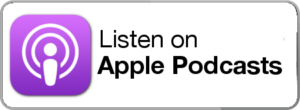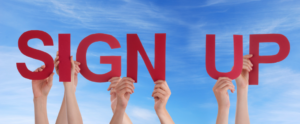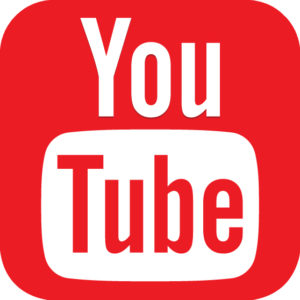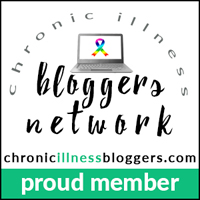Believe it or not, this episode has nothing to do with the recent U.S. election. We’re celebrating the 100th podcast episode of the Glass Half Full. But feel free to celebrate our right to vote in a democracy. All good!
If you’re a recent Glass Half Full listener, you can now peruse the archives of evergreen content that fall into these categories:
- Advocacy
- Alternative Healing Modalities
- Autoimmune Disorders
- Cancer
- Cardiovascular Disease
- Caregiving
- Coping
- Disability Rights and Accessibility
- General Health
- Laughter
- Mental Health
- Movement
- Music and the Arts
- Nature
- Neurological Conditions
- Nutrition
- Relaxation
- Research
- Social Support
- Spirituality
- Technology
If you’re running out of ideas on how to cope with COVID, check out this list of 50 different ways to spend your time in a safe and sane manner. If you’re in need of online accessible exercise and relaxation opportunities, check out this page.
To learn more about Judith Nangekhe Nk, the health service worker and caregiver in Kenya, here’s a video.
Please visit the Glass Half Full store. You can buy t-shirts, mugs, stickers, and even face masks with the Glass Half Full logo.
Transcript:
Hello and welcome to the one hundredth podcast episode of The Glass Half, I’m Leslie and I can’t believe I’ve been doing this for over four and a half years. Some people might reach their one hundredth episode during the first year. I guess if you put out two episodes a week, you’d get there, you know, a little more than a year. People do, I know, five days a week. What does that mean? I don’t want to do the math, but.
You know, you get to your 100th episode when you get there and and I’m here and I’m.
You know, four and a half years ago, my intention was to take what I’ve learned over, I guess at that time it was about 19 years of being a facilitator of support groups for adults with neuromuscular disease to sort of take that experience, the knowledge, my my desire to share resources and knowledge, share my journey as a, quote, unquote, patient with others. All of that was the catalyst for.
This enterprise called Glass Half Full on the name, the term, everybody’s familiar with the term, but it hasn’t been something I thought about a lot. But probably within a few days of deciding to do a podcast, I thought of the name. I thought, well, I really do think that’s my attitude maybe when I was younger was as positive. But certainly over the years, at some point, maybe in my 30s, things shifted and I started to see life. You know, as certainly more positive looking toward, you know, how to make the best of something, the proverbial lemonade out of lemons, and that was when I was diagnosed was in my mid 30s, so. Anyhow, I I would hope that kind of perspective resonates for you, that’s why you’re tuning in now for the first time or for the hundredth time, how many of you out there have listened to all 100 episodes?
I don’t know. I don’t know how many there are if if you’ve done it.
I would love to know and your reaction is one of the. It’s one of the things that definitely can increase is communication from people who listen to the show. And, you know, I in fact, I was thinking of some of the highlights of the last four and a half years, it has been really I mean, you know, imagine you’re creating something every couple weeks, putting it out there in the world and, you know, you know several listeners. I mean, at least I do from my patient community, some friends, but. It’s been really wonderful when people contact me, you know, total strangers and they tell me they listen to the show or they’ll talk about something they learned from a previous episode, you have no idea how significant that can be to me or to someone who’s putting stuff out there and not really making money from it and doing it because they have a passion. So I invite you to to let me know. And there are many ways to contact me. I’m not cloistered in the middle of the woods. I’m fairly accessible. So I thought of three big things and, you know, impacted me over the, you know, nearly five years I’ve been doing this. Well, one was certainly hearing from people who listen to the podcast, whether it’s email or Facebook comment on the Glass Half Full webpage. But I have been to places where I met someone.
And when they hear my name, they or they hear about Glass Half Full, they, you know, tell me they listen to it and they’ll hopefully, I don’t think is sure that they didn’t like this show. But that has been really great. Another great thing has been, you know, over the years heard about different patient organizations, patient leadership groups, advocacy groups. And I met a lot of people through Those are the people living with a chronic health condition or disability who are doing their own thing, whether it’s a podcast, a blog, they’re fierce advocates and going to Washington, you know, or their state capitals. There’s just a lot of very amazing people, inspiring people interviewed several of them, too. But just about a year ago, I won trip from this group called Wego Health, and it was a free trip to Las Vegas where I was with, I guess, about 20 other patient leaders. And it was a conference that I can’t remember seeing HLTH. Ostensibly, it has some kind of meaning as an acronym, I think. But it was it was a huge conference of, you know, movers and shakers in the health, medical, technology arena. And I never would have gone to this without winning a free trip because I think it was a twenty five hundred dollars. So that that was really cool.
Never would have happened without this podcast. And another thing I don’t think I’ve ever talked about. And this is just, you know, representative of meeting people you would never meet, I had taken over a meetup group for people with chronic health conditions. This is when, you know, pre-COVID, people met in person. And I it was I think it was meant as a support group. In any case, I took it over because I wanted to reach people with other conditions, you know, outside of neuromuscular disease. And I like doing field trips to in the San Francisco Bay Area. There are just so many amazing organizations and resources. So I was doing like field trips and it was online. But the you know, ostensibly you’re you’re connecting with people who live in your region so that when you actually do meet up in person, you know, it makes sense because you live near each other. Well, it turned out there was a woman who was part of this meetup group from Nairobi, Kenya, in Africa. And her name’s Judy. And I guess we chatted a little through meetup and she told me she was in Africa. And I knew well, she’s probably not going to make it to any of our in-person meetings. And somehow I can’t even remember how one thing led to another. But I felt that she was a health services worker.
She worked with people affected by HIV and AIDS. And I’m still I don’t know if she’s a nurse, but it sounds like she does a lot of nursing and administering of materials and education, so. We tried to talk, but at that time, maybe two years ago, her cell connection was really unreliable. But I worked on a video. It’s on YouTube, I think it’s called Judy: Caregiver. I did a video for her and she really appreciated it. And just recently, she asked if I can do another one. And she was able to provide audio files so it’s in her voice. And so that it just it just dropped last week. It’s on the Glass Half Full YouTube channel and. I think it’s Judy and her last name, which I can’t pronounce, but you’ll see it there just came a week ago. Anyhow, she’s using it to raise money through different churches in the West. I assume U.S. Canada, maybe Europe to English speaking countries raising money for the work that she’s doing in Nairobi, in and out, in and around Nairobi. So those are just some examples of things that never would have happened had they not started Glass Half Full. By the way, this is not scripted. If you if you didn’t know mostly I write a script because right now we’re at 18 minutes. And if I you know, if I’d written a script, I’d probably be at 12 minutes.
Oh, maybe 10. So just thought I’d do something novel. There’s a video, a short video that’s in five minutes showing. All these different images from, you know, almost all of the 99 podcasts and it’s on the website, it’s on the YouTube channel and I have a few actual video clips in it. One is part of an interview with Susan Jermey. There was an interview I recently did. She’s a comic and playwright. Another is a clip with Mike Muir, who is the great grandson of John Muir, and it’s at his ranch. If you listen to that podcast episode about three years ago, Mike, has he was diagnosed with M.S. years ago. I think he might have been a teenager he was definitely younger. And he he has this accessible ranch, horse, ranch, and he does carriage rides. And so he uses a wheelchair and the ranch is open, you know, for adventures, for all different kinds of people, kids and adults who use wheelchairs. And it’s, you know, accessible experience. So I have a clip from that. And then I have a clip from Melissa Felsenstein, who is a sound therapist, sound meditation practitioner. She uses gongs and crystal bowls and all kinds of different instruments. And the podcast episode with her, I think was about two years ago.
Andhow, she’s she’s still doing her thing and doing it via Zoom now. So I invite you to check out that video.
And in the course of putting that together, the video, I went through the whole archive of ninety nine podcast episodes. And by the way, most of these episodes are what you call Evergreen. They are. You know, they they’re relevant now, as relevant as they were when they were published, you know, three, four years ago, some of them are tied to events that have happened in the past. But it’s always been my intention to put together, to produce an episode that has lasting value, you know, so unless There was something, you know, we talked about and it’s now been proven to be not good for you, I can’t think of anything. I think, you know what, I do focus on alternative healing modalities, but nothing that is so far-fetched that, you know, in two years, somehow it’s been found to be not good. So anyway, the point is, if you haven’t heard a lot of the episodes, go back, check them out. And now there’s a feature on the home page where you can search by category. So, you know. I didn’t know how many different categories I would have, but I went through and I identified 21 categories. OK, so I’m going to tell you the 21 categories now. So if a couple of these pique your interest and you haven’t heard episodes relevant to this theme or category, go to the home page GlassHalfFull.online I found that online and check them out. OK. Drum roll please.
Advocacy, alternative healing modalities, autoimmune disorders, cancer, cardiovascular disease. Caregiving. Coping. Disability rights and accessibility. General Health. Laughter. Mental health. Movement, Music and the arts. Nature, Neurological conditions. Nutrition, relaxation. Research, Social support. Spirituality. Technology.
There you have it, 21 different categories, now some podcast episodes, you know, cover two or three of the categories. So they would come up, you know, in a few different searches. But it’s a drop-down menu. Hopefully it’ll make it easier for people to look at the
Archives, the library of episodes. Another thing that you find that’s new on the Web site is a link to a storefront, So over the past four and a half years, I’ve given away some Glass Half Full schwag, mostly mugs. I have had some T-shirts, a couple hats. But now you can buy whatever you want. You can buy a face mask with the Glass Half Full logo on it. And this is all through a company. I won’t name them. If you go to the website, check it out. But this is one way for me to capture a little revenue and for you to help promote the podcast and the concept. Of Glass Half Full and positive psychology, positive vibes. I really appreciate if you want to get any of your holiday gifts. I mean, imagine if you got each of your family members a mask. You’d be helping them with their health and you’d be helping me and hopefully helping other people who see the mask and think Glass Half Full, I want a piece of that. So. Spread the goodwill. Well, I don’t want to make this whole episode about promoting Glass Half Full, but what can I say? It’s a hundred. It’s you know, it’s that point where you want to celebrate and also continue to grow. So, you know, I’ve seen an uptick in downloads over the past few months.
I’ve been working on some SEO, which is search engine optimization, which is not fun. But seeing results does motivate me to do more of that. And really, if you if you’re not familiar with the term, it’s just tweaking things, you know, on the website with text and keywords that will help for searches when people go to the Internet and want to search for, you know, under a health condition or just a concept, maybe it’s, you know, November and they’re, you know, thinking about gratitude and they want to learn more about gratitude so they can practice gratitude. Well, will Glass Half Full come up in that search and gratitude? I don’t know. I’m working on it. I hope so, although gratitude is one of the themes I think I have gratitude covered under spirituality, which, you know, this is all in my head, too. And it’s not like rocket science. I could have gratitude as one of the categories, but I try to be a little more open ended with the with the categories, I didn’t want to have like 100 categories. So there is also a link on the homepage for accessible exercise. And I would say that accessible exercise as a resource is also a part of this other page I put together just a couple months ago at. I spent time on this 50 ways to cope with covid, so I haven’t been promoting that; it was a special feature for some groups, but now I’ve opened up, unveiled that it’s open to the world.
If you feel like you’re running out of creative ways to save your sanity during lockdown or, you know, the cases now are surging or the COVID cases are surging. And during these winter months, it’s going to be even more important to refrain from. You know, being in other buildings, being around a lot of people, we’re just taking our time, we want to protect ourselves. I have only been in one other building and it’s nine months other my house. And that was to, you know, Kaiser Permanente, the health facility I go to for some minor stuff just one time. So anyhow, what am I saying? That’s why I used the script. So 50 ways to cope during covid. I invite you to take a look at that article and accessible exercises, part of it, but so are a lot of other things. I am also doing covid had two speaking engagements, of course, via Zoom Virtual, but I wanted to share them with you. They’re listed on in the podcast notes for the 100th episode. So one is a presentation I did on nutrition and maintaining immunity during covid and that was for a Muscular Dystrophy Canada organization.
But it’s, you know, a YouTube video so anybody can watch it. And the other one, I’m very delighted to say, is that I was the keynote speaker at the Utah Program for Inherited Neuromuscular Disorders Family Conference, and that was just about, I think, three weeks ago. And then also on YouTube and I spoke about making social connections and talked a little about my background and what led me to become now a master of social connections. But certainly I’m as I would say, Malcolm Gladwell would say, I’m kind of a connector. At the end of that, toward the end of that presentation, it’s really focused on Zoom related connections and communities that I’ve become a part of. You know, during COVID that I wasn’t pre COVID, so I have talked for 24 minutes pretty much non-stop, can’t believe I did it and I only, I think, sipped water twice. I don’t know, maybe I should dispense with scripts altogether? Let me know what you think. How does this compare to my scripted ones? So thank you for being a part of this Glass Half Full ride. I hope you continue listening. I’m working on some very interesting episodes that several of them will happen before the end of the year and some won’t reach completion until early next year.
But, you know, keep tuning in and take care of yourself and celebrate!





